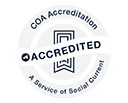Tips for Recognizing Child Abuse
Call the 24-hour Child Abuse Hotline at 800-25-ABUSE (800-252-2873) if you suspect that a child has been harmed or is at risk of being harmed by abuse or neglect. If you believe a child is in immediate danger of harm, call 911 first.
General warning signs
The child:
- Shows sudden changes in behavior or school performance.
- Has not received help for physical or medical problems brought to the parents' attention.
- Is always watchful, as though preparing for something bad to happen.
- Lacks adult supervision.
- Often wears long sleeves or other concealing clothing in warm weather.
Physical abuse warning signs
The child:
- Reports injury by a parent or another adult caregiver.
- Has unexplained burns, bites, bruises, broken bones or black eyes.
- Has any bruises or physical injuries but is too young to walk or otherwise injure themselves accidentally.
- Has fading bruises or other marks noticeable after an absence from school.
- Seems frightened of the parents and protests or cries when it is time to go home.
- Shrinks at the approach of adults.
Neglect warning signs
The child:
- Is frequently absent from school.
- Begs or steals food or money from others.
- Lacks needed medical or dental care, immunizations or glasses.
- Is consistently dirty and has severe body odor.
- Lacks sufficient clothing for the weather.
- Abuses alcohol or other drugs.
- States there is no one at home to provide care.
Sexual abuse warning signs
Sexual abuse warning signs
The child:
- Reports sexual abuse by a parent or another adult caregiver.
- Regresses to bedwetting or suddenly begins experiencing frequent nightmares or night terrors.
- Has difficulty walking or sitting.
- Demonstrates bizarre, sophisticated or unusual sexual knowledge or behavior.
- Becomes pregnant or contracts a venereal disease.
- Runs away.
Mental abuse warning signs
The child:
- Shows extremes in behavior, such as overly compliant or demanding behavior, extreme passivity or aggression.
- Is either inappropriately adult (parenting other children, for example) or inappropriately infantile (frequently rocking or head-banging, for example).
- Is delayed in physical or emotional development.
- Has attempted suicide or reports suicidal thoughts.
- Reports a lack of attachment to the parent.
For a more detailed list, read the Signs and Symptoms of Child Abuse and Neglect.
How do I report suspected abuse or neglect
If you suspect abuse or neglect you have a social responsibility to report it to the hotline. Your confidential call will not only make sure the child is safe, but also help provide the child's family the services they need to provide a safe, loving and nurturing home.
In addition, state law requires that most professionals in education, health care, law enforcement and social work report suspected neglect or abuse.
State law protects the confidentiality of all reporters, and your name is never disclosed. You may still choose to make a report anonymously, but the inability of investigators to follow up with you to obtain additional information may impede our investigation and the child's safety. The law protects you from civil liability for any call made in good faith.


 312-814-6800
312-814-6800